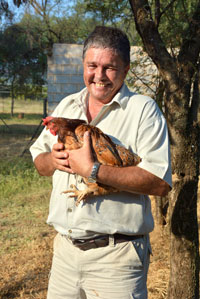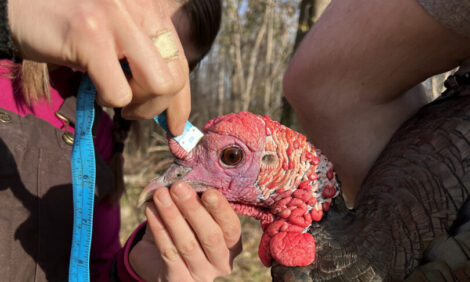



Sustainable Innovations in South Africa
One farmer is fighting harsh conditions with all-in-one micro-coops and a seriously tough breed of chicken, writes Chris McCullough.
Across Africa, many families rely on poultry farming, both to produce meat and to derive income from eggs. However, in order for families to live off raising chickens, they need two things: first, basic education in how to keep them, and second, a breed that will last.
With this in mind, a farmer in South Africa with a huge passion for animal breeding is transforming the poultry industry and helping thousands of families at the same time. Originally from Zimbabwe, 55-year-old entrepreneur Mike Bosch moved to South Africa back in 1983 when security issues were becoming a concern for him. He set up his own poultry breeding business in Bela-Bela, a town in South Africa’s Limpopo Province.
Already a respected breeder of Beefmaster and Boran cattle, Mike turned his hand to developing his own free-range poultry breed around 20 years ago and is now changing lives across the continent. His indigenous Boschveld chicken is a three-way cross between the African breeds Venda, Matabele and Ovambo – in a ratio of 50 percent, 25 percent and 25 percent respectively.
Well over two million of these Boschveld birds, which have a distinctive red and brown plumage interspersed with white feathers, are now in existence across Africa thanks to the breed’s resilience – these birds are able to handle the toughest conditions the continent can throw at them.
When Bosch was breeding the Boschveld he had a number of goals. “The Boschveld chicken is bred purely for hardiness and health,” says Bosch. “They survive and produce on what nature can provide, with only a small amount of maintenance feed to boost production. Africa can be a tough place to exist, particularly with varying climatic conditions, so we needed a breed that could adapt to the weather changes. Also, chickens in Africa are kept in free-range conditions and need to keep producing in these conditions.”
Bosch says the Boschveld’s inbred hardiness helps it to withstand poultry diseases. The birds on his farm are tested every three months for bird flu and salmonella and are vaccinated for the regular diseases including Newcastle disease, Gumboro disease and coccidiosis.
There are minimal biosecurity measures at the farm as the Boschveld is so resilient to disease it can withstand most threats, aside from a hungry jackal. “The cocks are strong, aggressive and have noble conformation,” says Bosch. “Boschveld hens are very fertile with strong, healthy offspring that grow well. They will start producing eggs at less than 20 weeks of age and can produce chicks that thrive very well indeed.
“Cocks are ready for slaughter at 12 weeks old,” he continues, “depending on nutritional levels, and produce a meat with a real distinctive flavour. We also do not trim the beaks on the Boschveld chickens as there is no need.”
Bosch has around 50,000 hens in total on his 20-hectare farm at Bela-Bela and is very much focused on the breeding aspect of the industry. He keeps around 7,000 birds for laying and runs 100 roosters for every 600 hens.
“I have around 30,000 eggs in incubators at any one time which will be hatched and sold on for breeding or laying,” says Bosch. “The Boschveld hens are lasting about two-and-a-half years in total before they need to be replaced. They are laying two eggs every three days on average and I receive about R13 (£0.76) per egg when selling them unhatched. I hatch eggs every week as customers want them at different stages, hatched or unhatched. Day-old chicks are making slightly higher returns at R15 (£0.88) but can be as high as R50 (£2.93) if they’re going to West Africa. If I sell them at four weeks of age then I receive around R45 (£2.64) and at point of lay, which is around 18 weeks, they are sold at R100 (£5.87).”
He sells birds into 17 countries within Africa and has recently embarked on another scheme to help poorer farmers become more sustainable and produce their own poultry, eggs and vegetables – while harnessing the sun’s energy – to provide an income.
Bosch has set up a programme that supplies small farmers and poultry keepers with a chicken coop, chickens to put in it, feed for the birds and some vegetable seeds. He also supplies some LED lights and a solar panel for the top of the coop that will produce enough energy to charge mobile phones via a small battery pack.
It’s a programme that, according to Bosch, could transform the lives of thousands of Africans who are prepared to commit to the scheme. Not only does the package provide food for the families to consume and sell, but it also provides fruit and vegetable seeds that can be sown in the soil fertilised by the chickens.
“The chickens fertilise the area on which the coop stands,” says Bosch, explaining that the coop is intended to be moved by producers once the chicken manure has fertilised the ground. Once fertilised, the area will grow almost anything, he says. “Spinach, tomato and beetroot are the most common seeds that people request to sow once the chicken coop has moved, but also maize and cassava.”
“The cheapest form of protein for people is found in eggs,” says Bosch. “We can supply a six metre by three metre cage with 16 hens which can produce 40 eggs per day for the household. Replacement birds, feed and seed are also supplied in the package along with some basic training in how to look after the birds. All the drinking and feeding equipment is included along with the solar panel, LED lights and the battery pack. It costs around R95,000 (£5,573) and can be delivered anywhere for an extra cost if over 300km away.
“We have full export accreditation for all our birds so selling this package into another African country is not a problem,” he continues. “Ideally we would like to sell 25 of the cages into a region so that the owners can all learn from each other and of course offset the delivery cost and revisit costs. I sold 5,000 of these systems in one year and they are becoming very popular indeed.”
“It’s ironic that the South Africa government will not set up a support scheme for people to buy this form of food security,” adds Bosch, “but at the same time they are buying thousands of birds off me in a year.”
This article originally appeared in the May 2017 edition of The Poultry Site Digital. To read other articles from this issue, themed around 'sustainability', click here.
December 2017








